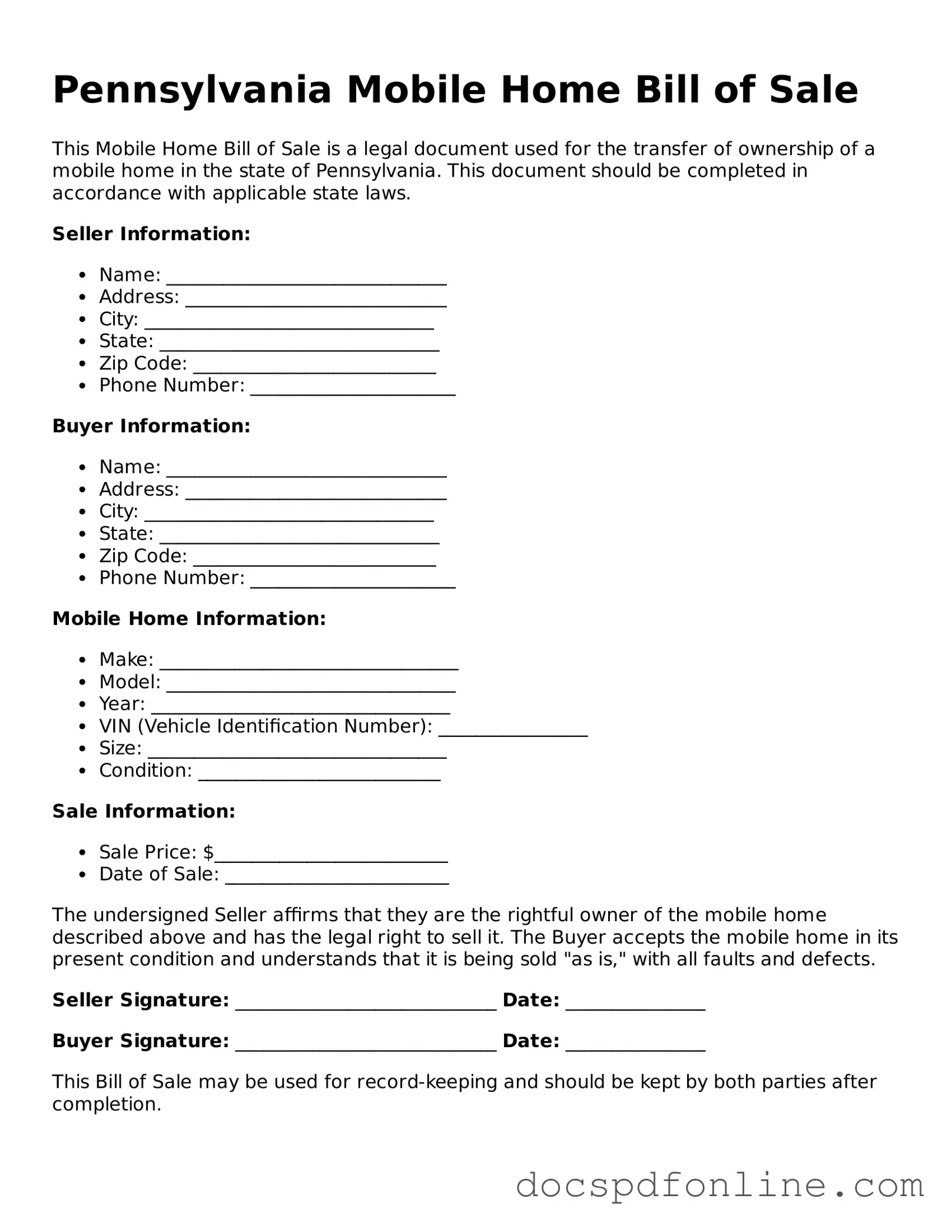Legal Mobile Home Bill of Sale Template for Pennsylvania
The Pennsylvania Mobile Home Bill of Sale form serves as a legal document that records the transfer of ownership of a mobile home from one party to another. This form is essential for ensuring that both the seller and the buyer have a clear understanding of the transaction details. Properly completing this form can help prevent future disputes regarding ownership and responsibilities associated with the mobile home.
Launch Editor Now

Legal Mobile Home Bill of Sale Template for Pennsylvania
Launch Editor Now
Save time — finish this form fast
Finish Mobile Home Bill of Sale online — edit, save, download made easy.
Launch Editor Now
or
↓ PDF File
